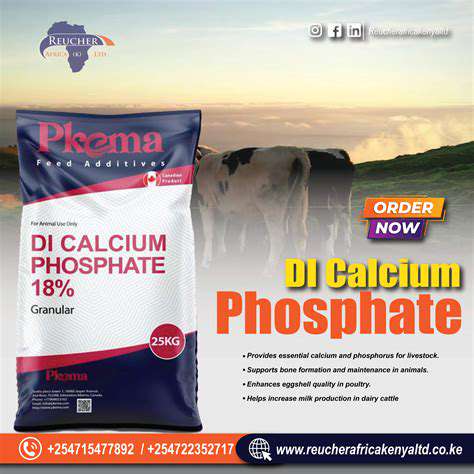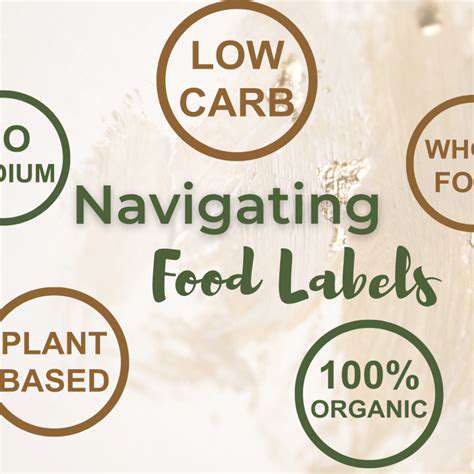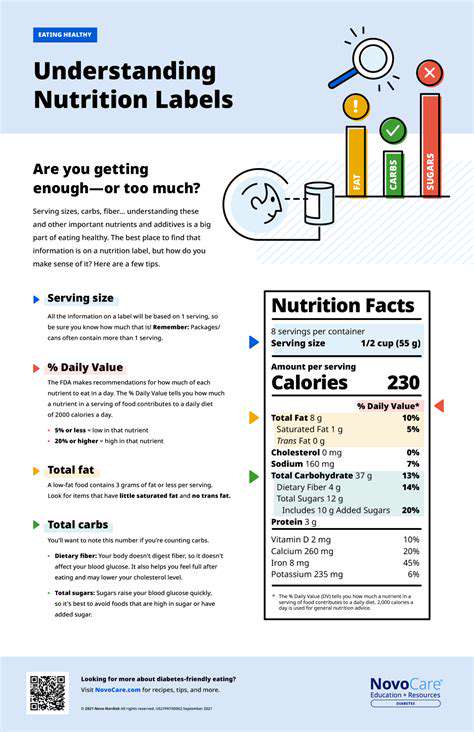Guide to the Benefits of Fermented Foods (Kefir, Sauerkraut, etc.)

The Science Behind Probiotics
Probiotics are live microorganisms that, when consumed in adequate amounts, confer a health benefit on the host. This isn't just some trendy buzzword; it's a scientifically backed concept with growing evidence supporting its positive impact on various aspects of human health. The mechanisms behind their purported benefits are multifaceted, ranging from modulating the gut microbiome to enhancing immune function. Research consistently highlights the crucial role of a balanced gut microbiome in overall well-being.
Types of Probiotics and Their Sources
Numerous probiotic strains exist, each with potentially unique properties. These strains are often found in various food sources like yogurt, kefir, and sauerkraut. Beyond these common sources, specific probiotic supplements can also be beneficial, particularly for individuals with specific dietary needs or concerns. Understanding the different types and their potential benefits is essential for informed choices.
Probiotics and Digestive Health
One of the most well-documented benefits of probiotics is their role in supporting digestive health. They can help restore balance to the gut microbiome, potentially alleviating symptoms of conditions like irritable bowel syndrome (IBS) and inflammatory bowel disease (IBD). The impact on digestion extends to improved nutrient absorption and reduced instances of digestive discomfort. These benefits are particularly important for maintaining overall health.
Probiotics and Immune System Support
The gut microbiome plays a crucial role in shaping the immune system. Probiotics, by modulating the composition of this microbiome, can contribute to a strengthened immune response. This is particularly relevant in preventing infections and improving overall resilience to illness. In essence, probiotics might help bolster the body's natural defenses against various pathogens. This makes them a potential ally in maintaining a healthy immune system.
Probiotic Benefits Beyond Digestion
Research suggests probiotics may extend their benefits beyond the digestive system. Some studies indicate potential links to improved mental well-being, reduced risk of certain allergies, and even better cardiovascular health. While more research is needed to fully understand these connections, the initial findings are promising and highlight the potential complexity of probiotic effects.
Choosing Probiotics: Important Considerations
When choosing probiotic supplements or foods, it's crucial to consider factors like the specific strains, the amount of live cultures, and the overall quality of the product. Consulting with a healthcare professional can provide personalized guidance based on individual needs and health conditions. This ensures that the chosen probiotics are appropriate and effective for achieving desired health outcomes. Understanding the labeling and selecting reputable brands are essential parts of responsible probiotic consumption.
Beyond the Gut: Exploring the Broader Health Benefits
Gut Health and Beyond: A Holistic Perspective
Fermentation, a process of microbial transformation, isn't just about a healthy gut. It plays a crucial role in overall well-being, impacting various bodily functions and contributing to a broader sense of health and vitality. The positive effects extend far beyond the digestive tract, influencing everything from immune function to mental clarity.
Understanding the complex interplay between the gut microbiome and the rest of the body is key to appreciating the holistic benefits of fermented foods. This intricate relationship highlights the importance of a balanced and diverse gut flora for optimal health and well-being, demonstrating that gut health isn't an isolated system, but a vital component of our overall health.
Immune System Support and Enhanced Immunity
Fermented foods, rich in beneficial bacteria, are powerful allies in supporting a robust immune system. These probiotics help to maintain a healthy balance of gut bacteria, which is critical for immune function. A strong immune system is crucial for defending against illness and promoting overall wellness.
Mental Well-being and Cognitive Function
Emerging research suggests a strong correlation between gut health and mental well-being. The gut-brain axis, a complex communication network, connects the digestive system to the central nervous system. Fermented foods, by fostering a healthy gut microbiome, may contribute to improved mood regulation, reduced anxiety, and enhanced cognitive function. This connection underlines the importance of nourishing both the gut and the brain for optimal mental health.
Improved Nutrient Absorption and Digestion
The beneficial bacteria in fermented foods play a vital role in breaking down complex nutrients, making them more easily digestible and absorbable by the body. This enhanced nutrient absorption can lead to increased energy levels, improved overall health, and a feeling of well-being. Fermented foods can help to alleviate digestive discomfort and promote a healthy digestive process, improving the efficiency of nutrient uptake.
Cardiovascular Health and Blood Sugar Regulation
Certain fermented foods are associated with improved cardiovascular health, potentially by lowering blood pressure and cholesterol levels. Furthermore, the probiotics in fermented foods may help to regulate blood sugar levels, which is crucial for preventing or managing conditions like diabetes. Maintaining healthy blood sugar levels is essential for overall well-being and can contribute to a healthier cardiovascular system.
Weight Management and Metabolic Health
A healthy gut microbiome is crucial for maintaining a healthy weight. Probiotics in fermented foods may positively influence metabolism, potentially leading to better weight management outcomes. This positive effect on metabolic health can contribute to a more balanced approach to weight management, emphasizing the importance of a holistic approach to wellness. Fermented foods can play a key role in promoting a healthy relationship with food and body image.
Rigorous data collection methods are essential for ensuring the accuracy and reliability of the research findings. This involves selecting appropriate data collection tools, such as surveys, interviews, or experiments, and implementing procedures that minimize bias and ensure data quality. Carefully chosen methods will yield accurate and reliable information, leading to trustworthy conclusions. Maintaining meticulous records throughout the data collection process is crucial for ensuring traceability and facilitating the reproducibility of the study.
A Deep Dive into Specific Fermented Foods: Kefir, Sauerkraut, and Beyond

Understanding the Fermentation Process
Fermentation is a fascinating biological process that involves the breakdown of organic substances by microorganisms, such as yeast and bacteria. This process is crucial in various industries, from food production to the creation of pharmaceuticals. The specific types of microorganisms used and the conditions under which the fermentation takes place dictate the final product and its characteristics. Understanding the specific steps and parameters involved in fermentation is key to optimizing the process for desired outcomes.
Different types of fermentation result in different end products. For instance, alcoholic fermentation produces ethanol, while lactic acid fermentation produces lactic acid. This intricate interplay of microorganisms and their environmental conditions is responsible for the diverse array of fermented foods and beverages we enjoy.
Types of Fermented Foods
The world of fermented foods is vast and diverse, encompassing a wide range of products, from familiar staples to more exotic options. From kimchi and sauerkraut to yogurt and cheese, these foods offer unique flavors and textures, often with added health benefits. Understanding the various types of fermented foods allows for informed choices and appreciation of their culinary significance.
Each type of fermented food utilizes specific microorganisms and processes, resulting in unique characteristics. These microorganisms play a critical role in the flavor and texture development, contributing to the distinct qualities of each product. The use of traditional methods and techniques often adds to the appeal and authenticity of these foods.
Benefits of Fermentation
Fermentation offers numerous benefits beyond enhancing the taste and texture of food. Many fermented foods are rich in probiotics, which are beneficial bacteria that can support gut health and boost the immune system. These tiny microorganisms, when consumed in sufficient quantities, can contribute to a healthier digestive system. The process of fermentation often leads to the preservation of food, extending its shelf life.
Microbial Roles in Fermentation
The role of microorganisms in fermentation is multifaceted and essential to the process. Different types of microorganisms have specific metabolic functions that are critical to the fermentation process. These microorganisms break down complex organic compounds into simpler molecules, thus influencing the final product's taste, texture, and nutritional value.
Each type of microorganism involved in fermentation plays a specific role, whether it's producing acids, alcohols, or other metabolites. Optimizing the conditions for these microorganisms is crucial for achieving the desired outcome in the fermentation process. This includes factors like temperature, pH, and oxygen levels.
The Science Behind Fermentation
The science behind fermentation is complex and fascinating, involving biochemical reactions at a microscopic level. These reactions lead to the production of various byproducts that alter the food's composition and properties. The complex interplay of microorganisms and environmental factors results in the wide range of fermented products we see and enjoy. Understanding the precise mechanisms of fermentation allows for more precise control over the process and the development of improved products.
Incorporating Fermented Foods into Your Diet: Practical Tips and Considerations

Benefits of Fermented Foods
Fermented foods, like sauerkraut, kimchi, and yogurt, offer a wealth of health benefits due to the beneficial bacteria they contain. These probiotics are essential for maintaining a healthy gut microbiome, which plays a crucial role in digestion, immunity, and overall well-being. These microorganisms can help break down complex carbohydrates and improve nutrient absorption. Furthermore, fermented foods often contain beneficial enzymes and vitamins that are lost during processing or cooking of conventional foods.
The presence of these probiotics can support a healthy digestive system, leading to improved regularity and reduced instances of digestive discomfort. In addition, a robust gut microbiome is linked to a stronger immune response, making you more resilient to illness.
Types of Fermented Foods
A wide variety of foods can be fermented, from vegetables like cabbage and cucumbers to dairy products like milk and cheese. The fermentation process involves the use of specific microorganisms, such as bacteria and yeasts, to transform the food's components. This process also creates unique flavors and textures, adding variety to your diet. Beyond the familiar examples, there are lesser-known but equally beneficial fermented foods, such as tempeh and miso.
Dietary Considerations
When incorporating fermented foods into your diet, it's essential to consider any dietary restrictions or sensitivities. Some individuals may experience bloating or gas, especially when starting to consume these foods. Gradually increasing your intake can help minimize these effects. It's always prudent to consult with a healthcare professional or registered dietitian to determine the best approach for your specific needs and any existing health conditions. This ensures you can benefit from fermented foods safely and effectively.
Preparation and Storage
Fermented foods can be prepared at home using simple techniques or purchased from specialty stores or farmers' markets. Proper preparation and storage techniques are crucial to maintain the quality and safety of these foods. Storage in cool, dark environments is important to prevent the growth of undesirable microorganisms. Learning basic fermentation techniques can also be a rewarding experience, enabling you to create your own fermented foods with customized flavors and textures.
Nutritional Value
Fermented foods often contain higher amounts of certain vitamins and minerals compared to their unfermented counterparts. This is due to the breakdown of complex compounds during the fermentation process, making nutrients more readily available for absorption. Furthermore, the presence of probiotics enhances the nutritional value, supporting optimal health. For example, fermented dairy products are excellent sources of calcium and vitamin D.
Potential Health Benefits
Beyond digestive health, fermented foods are associated with various other potential health benefits. Some studies suggest a link between consuming fermented foods and improved cardiovascular health, reduced risk of certain cancers, and enhanced mental well-being. However, more research is needed to fully understand the extent of these benefits. It's important to remember that the benefits are often linked to the overall healthy lifestyle choices you adopt and not solely on the fermented foods themselves. This aspect highlights the importance of balanced diets and healthy lifestyle practices alongside the consumption of fermented foods.
Read more about Guide to the Benefits of Fermented Foods (Kefir, Sauerkraut, etc.)
Hot Recommendations
-
*Guide to Managing Gout Through Diet
-
*Best Habits for Financial Well being
-
*How to Build a Routine for Better Mental Health
-
*How to Eat Healthy on a Budget [Tips & Meal Ideas]
-
*Guide to Practicing Self Acceptance
-
*How to Incorporate More Movement Into Your Day
-
*Guide to Managing Chronic Pain Naturally
-
*Guide to Building a Reading Habit for Well being
-
*Top 5 Weight Loss Supplements That Actually Work
-
*Best Exercises for Postpartum Recovery [Beyond Abdominal Work]











